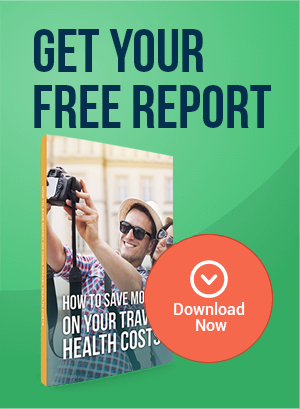Help Us Improve Access to the BCG Vaccine for Travelling Families!
November 27th, 2024 Read More »Are You Or Your Personnel At Risk Of Q Fever?
Are You Or Your Personnel At Risk Of Q Fever?
The following activities may lead to risk of Q Fever
- contact with cattle, sheep or native animals?
- working in or visiting abottoirs or meat packing plants?
- regular visits to rural areas, particularly in dusty conditions?
- maintaining transport equipment that travel in these areas?
- Working with animal specimens in classrooms?
One study even showed that persons who cut the grass along the side of the road have an increased risk of contracting this disease!
Q fever is a disease caused by a germ called Coxiella Burnetti. In Australia, cattle, sheep and goats are the main resevoir, although bandicoots, kangaroos and dogs can be infected. In Canada Q fever has occurred from exposure to cats and rabbits. Man can be infected with the germ (Coxiella Burnetti) following contact with infected animals or products from these animals, urine, faeces or milk birth products.
The Q Fever germ is very tough and can survive in dust formed from contaminated animal products. Infected dust may settle on the ground, or on wool, hides, clothing, straw etc, and then be disturbed by movement or wind. Infection may also be acquired from drinking unpasteurised milk. Men are more likely to develop Q fever than women. Q fever affects mainly men aged 20-50 years old. In 1997 men accounted for 85% of the notifications and the highest rate was reported in the 20-24 year old age group.
What are the effects of the disease Q Fever?
Acute Q Fever develops after an incubation period of about 3 weeks.
- Fever, usually of abrupt onset and lasting for 5-50 (or more) days
- Chills, lasting 3-4 days
- Profuse sweats
- Severe headache which usually lasts with the fever
- Muscle and joint aches and pains
- Profound fatigue and tiredness
- Nausea
- Eyes become sensitive to light
- Loss of weight
As these symptoms occur with other diseases (eg; influenza) Q fever is often misdiagnosed. Some persons DO NOT develop symptoms and infection is only discovered when they are tested incidentally.
How Long Does Q Fever Last?
An uncomplicated infection lasts 2-6 weeks. If complications develop, people may be ill for up to 6 months. Some persons develop a persistent low grade infection which causes headache, joint and muscle pain, tiredness and sweating attacks for up to 5 years. Some also develop an infection in the heart muscle which may not become obvious for 5 years. After the primary attack it is very rare for individuals to experience a second serologically confirmed attack.
How Important Is Q Fever Anyway?
The risk of contracting Q fever among Australian meat workers has been estimated at one in 300 unvaccinated workers per year. Claims made to the Australian meat industry as a result of Q fever are at least A$1 million annually. Q fever rarely attracts media attention and yet is among the most costly and severe infectious disease in Australia. Q Fever occurs worldwide!
Every year, about 600 cases are reported in Australia, of which about 300 are in Queensland. The symptoms are often mistaken for severe influenza, while some cases develop no symptoms, so the real incidence of the disease is likely to be much greater. Unlike influenza, severe complications can develop including extreme fatigue, heart and liver damage.
The average cost of an uncomplicated case is $7000. Two to four weeks of sick leave would be expected. Up to 20% of cases are complicated, leading to long term complications and up to 6 months sick leave being taken. Complicated cases leading to litigation are common, and the cost of this litigation ranges from $300,000 to $1.24million.
Vaccination
There is an effective vaccine against Q fever. Subjects should be vaccinated before they start work as the risk of infection is highest in the first few years. Persons who have already had Q fever cannot be vaccinated as they develop severe complications to the vaccine (local abscesses and even Q fever symptoms). Before vaccination, a person must have three things:
- A blood test
- A skin test
- A detailed history
Blood test and skin test need to be done on the same day. These will provide a guide as to whether a person has been previously infected with Q Fever. If one of the tests is positive, it means you have already had Q Fever, so you do not need to be vaccinated. Each individual needs to discuss their particular situation at the time of screening. The vaccination is effective, and lasts for life. You have the option of your record of vaccination being placed on the Australian Immunisation Register (AIR). All persons screened and or vaccinated in our clinic will also receive a card documenting their Q Fever status. This card is often requested before entering workplaces where there is a risk of Q Fever, or you can access your medicare based AIR.
Where To Get The Vaccine?
We give the vaccine at our clinic. Vaccination is not normally given by General Practitioners since it requires specialised expertise and complicated pre-vaccination screening. Some of our patients have informed us that they have had great difficulty trying to find out where to get the test and vaccine. Vaccinating in groups is advisable to keep costs down.
To book an appointment in the CBD Brisbane to have your Q fever tests and vaccine…
if you are an existing patient – to book a Q fever appointment click HERE
If you are a new patient and have not seen Dr Deb’s before, – to book a Q fever appointment by clicking HERE.
If you have any queries about the risk of Q fever in YOUR particular situation, please contact our staff who can help you organise the vaccine. Phone 07 3221 9066 or email clinic@thetraveldoctor.com.au.
Mpox and risk to Travellers
August 22nd, 2024 Read More »
Understanding Japanese Encephalitis: A Travel Health Advisory
June 10th, 2024 Read More »



